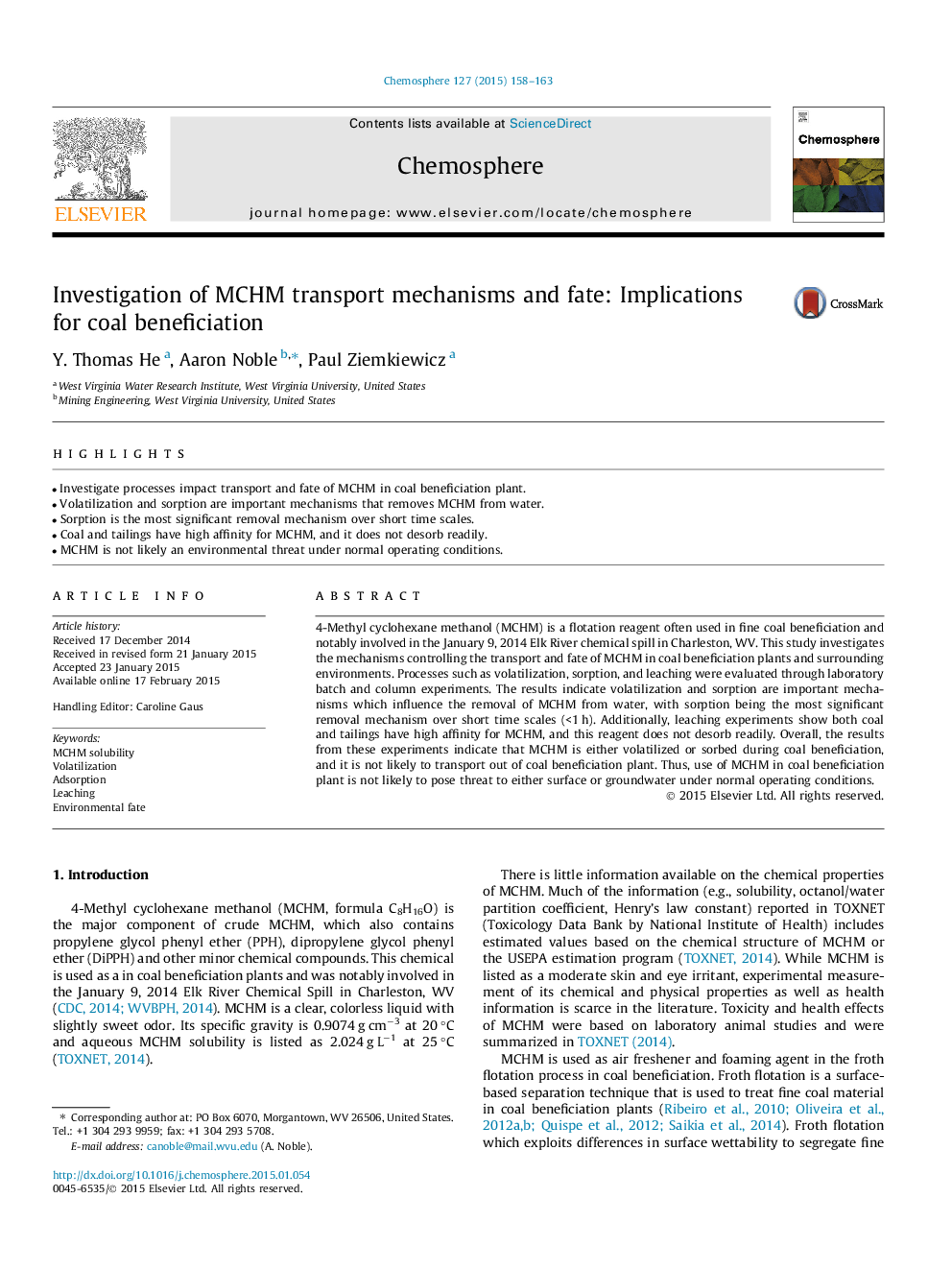| Article ID | Journal | Published Year | Pages | File Type |
|---|---|---|---|---|
| 4408533 | Chemosphere | 2015 | 6 Pages |
Abstract
4-Methyl cyclohexane methanol (MCHM) is a flotation reagent often used in fine coal beneficiation and notably involved in the January 9, 2014 Elk River chemical spill in Charleston, WV. This study investigates the mechanisms controlling the transport and fate of MCHM in coal beneficiation plants and surrounding environments. Processes such as volatilization, sorption, and leaching were evaluated through laboratory batch and column experiments. The results indicate volatilization and sorption are important mechanisms which influence the removal of MCHM from water, with sorption being the most significant removal mechanism over short time scales (<1Â h). Additionally, leaching experiments show both coal and tailings have high affinity for MCHM, and this reagent does not desorb readily. Overall, the results from these experiments indicate that MCHM is either volatilized or sorbed during coal beneficiation, and it is not likely to transport out of coal beneficiation plant. Thus, use of MCHM in coal beneficiation plant is not likely to pose threat to either surface or groundwater under normal operating conditions.
Related Topics
Life Sciences
Environmental Science
Environmental Chemistry
Authors
Y. Thomas He, Aaron Noble, Paul Ziemkiewicz,
